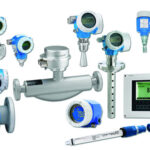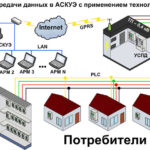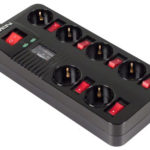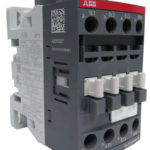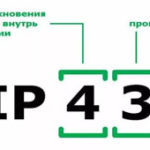The invention of electric generators and the beginning of widespread use of electricity fundamentally changed industrial production and living conditions for most of the population of the globe, bringing both to a new level. The intensive laying of power grids, the gradual emergence of complex equipment have created a need for qualified specialists in their installation and maintenance.

Contents
Professions related to electricity
The list of tasks that workers and engineers have to perform when setting up new grids and maintaining old ones is quite extensive. Specialization is in effect to train professionals in a realistic time frame, i.e. for the time spent studying in secondary and higher educational institutions.
- Electrician. Maintains electrical equipment and maintains internal networks in working order. Adjusts and repairs appliances, communication systems, lighting fixtures, replaces outlets and switches.
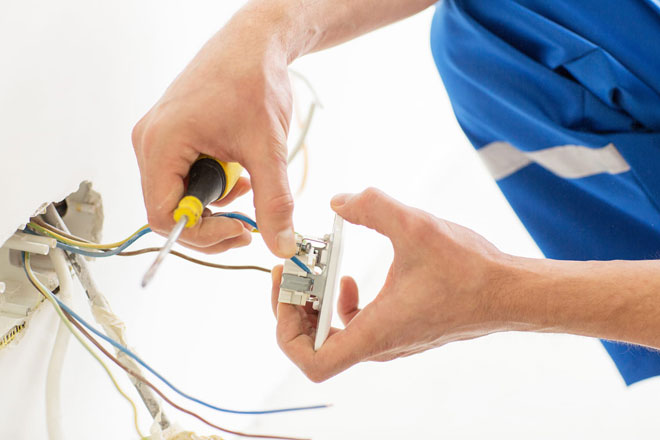
- Electrician. Specializes in repairing power and low voltage systems. Serves lighting panels, low-voltage electric motors, pumps, fixed telephone sets, and other.
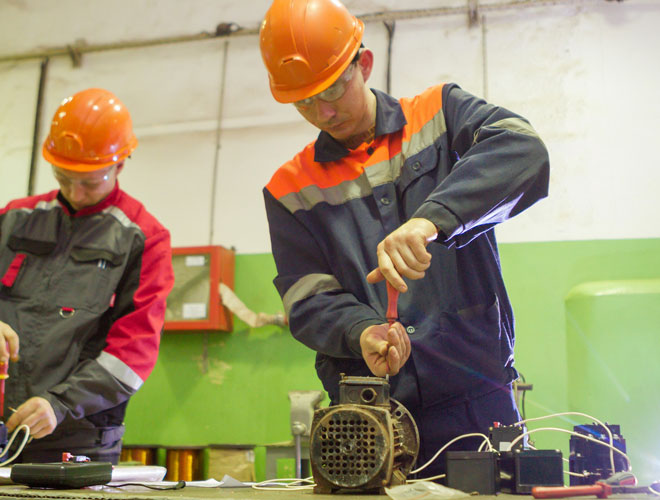
- Electrician. Lays internal and external networks, installs and repairs equipment related to the power supply of various facilities and areas. Assembles and adjusts transformers, makes holes for laying cables.
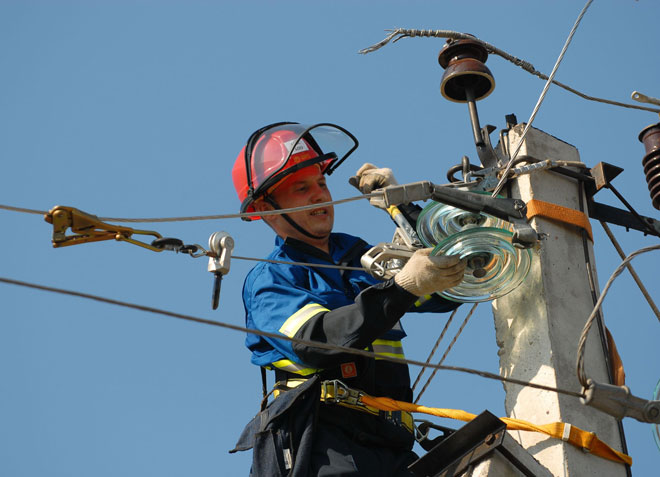
- Electrician. Creates electrical wiring outside and inside of the building, and is engaged in the marking and fixing of cables. Reads schematics.Install supports for street lighting and overhead lines.
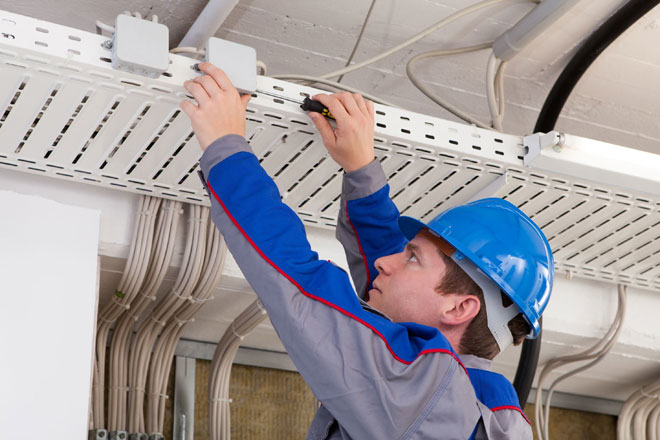
- Electrical engineer. Designs electrical networks in residential and industrial buildings, calculates planned electricity consumption, selects lighting equipment, switchboard models, etc. Provides acceptance, storage and write-off of electrical installations.
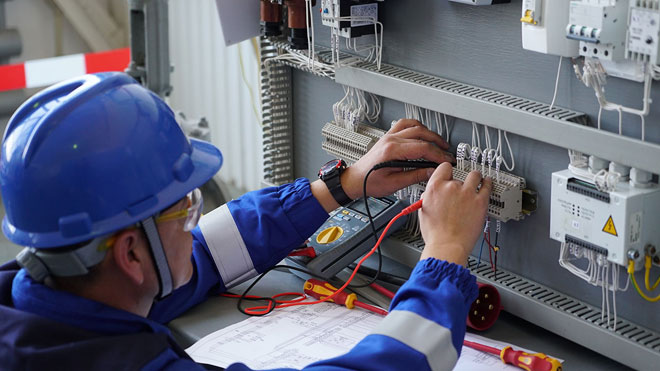
- Power Engineer. Designs electrical, heat and gas networks. Selects and purchases the necessary equipment. Inspects automatics and relay protection. Monitors loads in the power system. Optimizes energy resource costs.
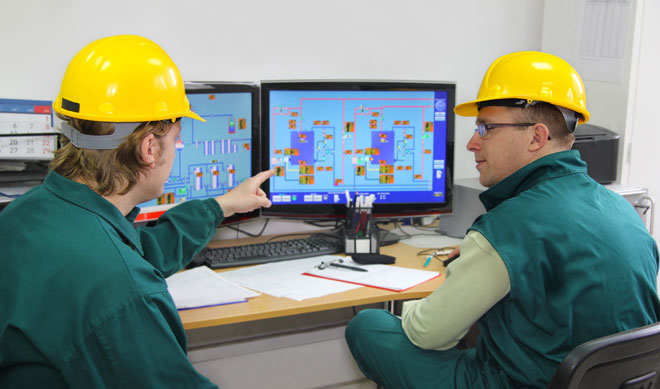
Electrician
The electrician's profession is at the intersection of mental and physical labor. The specialist is responsible for laying external and internal power cables, installing that part of the equipment required to power supply to residential homesas well as commercial and industrial facilities. He performs diagnostics of assemblies and apparatuses and, if necessary, eliminates malfunctions. He is also responsible for restoring power after hurricanes, earthquakes and other natural disasters.
Job Duties
Job descriptions for electricians describe the following range of duties:
- Wear protective clothing and personal protective equipment, check that fasteners are secure, and that grounding is correct and in good working order.
- Comply with occupational safety, fire safety and sanitation rules and regulations.
- Notify the Headquarters of Civil Defense and Emergency Situations of possible emergencies at the site.
- Replace defective electrical equipment and lay solid cable instead of the damaged one.
- Monitor the condition of the most important parts of the network.
- Perform routine inspections and technical tests.
- Carry out installation of appliances and laying of supply lines in accordance with the approved working documentation.
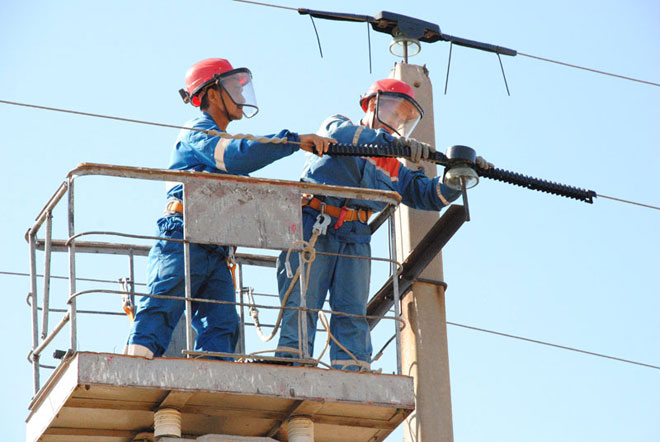
What knowledge and skills an electrician should have
An electrician is not an easy specialty. Anyone seeking this position with a public or large private organization must have experience in the following areas:
- maintenance of electrical grids and equipment;
- repair of power lines, transformer substations, electrical panels;
- management of power supply systems;
- supervising the observance of the rules of operation of appliances.
In addition, only persons capable of documenting their professional qualifications and having documents such as:
- diploma of secondary vocational or higher education;
- A certificate registered in the Rostekhnadzor's register, Electrical Safety Approval Group.
What kind of people are best suited for this profession
The work of an electrician can hardly be called simple, a specialist must have extensive knowledge, be able to quickly analyze the situation and make competent decisions. In some companies, you will have to work on emergency calls, eliminating the consequences of accidents, at any time of the day or night, often in strong winds, in freezing weather, etc.
A person who chooses this career should ideally be technically savvy, responsible and attentive to detail. Important skills can also include communication skills and an affinity for teamwork. In addition, the difficult working conditions and responsibility for the lives of others require that the employee has a stable psyche and good physical health. People with conflicts or phobias, such as a fear of heights, should not choose to become an electrician.
Where do you study to become an electrician?
The necessary diploma can be obtained at a number of domestic technical schools and universities, which provide training in the following areas:
- Electric power and electrical engineering;
- Electrical equipment and electrical facilities of enterprises, organizations and institutions;
- Technical operation and maintenance of electrical and electromechanical equipment;
- Installation, adjustment and operation of electrical equipment of industrial and civil buildings;
- Electrician for repair and maintenance of electrical equipment;
- Electrician for repair of overhead power lines;
- And others.
You can also get an electrician's certificate by completing professional courses at one of these educational institutions.
Career Prospects for an Electrician
Since electrical appliances and networks are used everywhere in all sectors of the economy, electricians are in high demand in the job market. A good track record and experience in solving a variety of tasks help a specialist to get a fairly well-paid place. The monthly income is about 40 thousand rubles, while in the largest metropolitan areas of the country, Moscow and St. Petersburg, as well as in shift work, such an employee is entitled to expect remuneration in the area of 50-80 thousand, depending on the degree of load.
Career growth occurs gradually with the accumulation of experience and increase the level of category. There are 6 of them in total. To improve their competitiveness, many master related professions: electrician, electrical fitter and electrician. In addition, there is an opportunity to start your own business, since a few years of conscientious and high-quality work electrician acquires connections with promising customers who will help the business to develop steadily at the initial stages.
The difference between an electrician and an electrician
The main responsibility of an electrician is to ensure that the electrical machines and mechanisms in his company work properly. Such an employee must clearly know not only the rules of safety, electrical physics, be able to read drawings, but also understand the internal structure of various units and perform maintenance and repair, including mechanical damage: deformation of metal parts, breakage of chain and belt gears, etc.
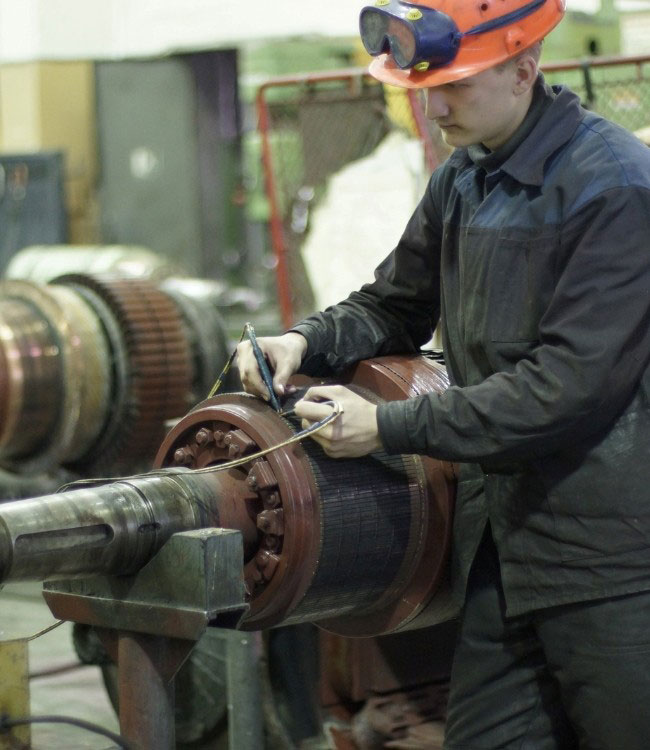
Electricians provide power to the object, correctly organize the connection of lines with equipment, lay cables, punch holes in the walls for wiring, install electrical panels, connect lighting, air conditioning and other engineering systems to power. These employees are responsible for the prompt restoration of power at the site or any part thereof. During operation, they are exposed to an increased risk of electric shock, e.g., if the insulation of the supply cables is damaged cables.
In practice, there is often a mixture of responsibilities and positions of specialists, a trained electrician can perform the functions of an electrician, an electrician can be engaged in maintenance of power equipment, etc.
Electrician
The main task of an electrician is to maintain the performance and normal functioning of electrical systems for domestic and industrial purposes. Persons educated in this specialty are required in housing and maintenance services, repair shops, factories and plants.
It is they are engaged in solving such tasks as: replacement of sockets, installation of switches, energy meters, ceiling and wall lights. In addition, their acquired knowledge and experience in repairing electronic devices enables them to identify and replace damaged components in electric ovens, televisions, players, audio speakers, and other equipment. Employers often add responsibilities for wiring, setting up and following up on power equipment.
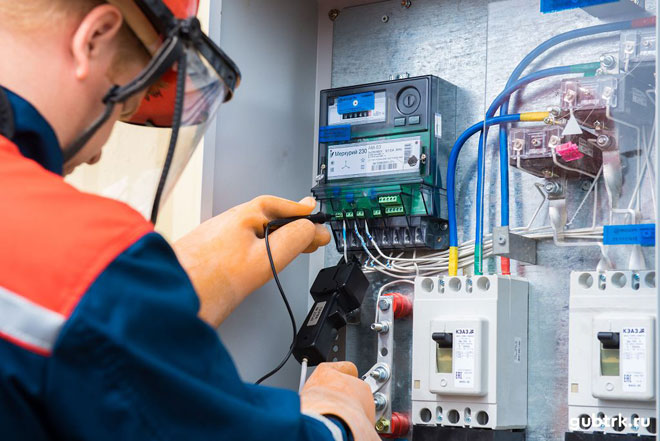
Job duties
Typical job descriptions common to most businesses require an electrician to:
- Conduct routine inspections of equipment, and maintain entrusted equipment in serviceable condition.
- Carry out the adjustment of electrical devices, switch the functional modes.
- Ensure timely repairs of networks and equipment.
- Comply with all health and safety requirements when working with electricity.
- Use personal protective equipment and wear company uniform.
- Keep working tools in good condition and report loss or breakage promptly.
- Regularly, at least once every 2 years, undergo a professional medical examination.
- Assemble and disassemble power and signal cables.
- Conduct briefings on safe handling of electrical grids and industrial equipment.
- Administer first aid to victims of electrocution.
Qualification requirements for an electrician
The electrician belongs to the company's line personnel and usually works under the direction of the chief engineer or other person in charge. The position mostly involves working with one's hands, albeit at constant health risk. The passage of current through the body can result in burns, nervous system damage, or even death.
However, in most cases, an electrician works according to already developed instructions and projects, and therefore he is not required to have the same in-depth knowledge as an electrical engineer. The voltage faced by the employee does not exceed 1,000 volts, so a group 3 electrical safety clearance is sufficient for the job. Higher or secondary technical education is not a prerequisite for the vacancy, you can finish vocational school or courses to start a career at an earlier age.
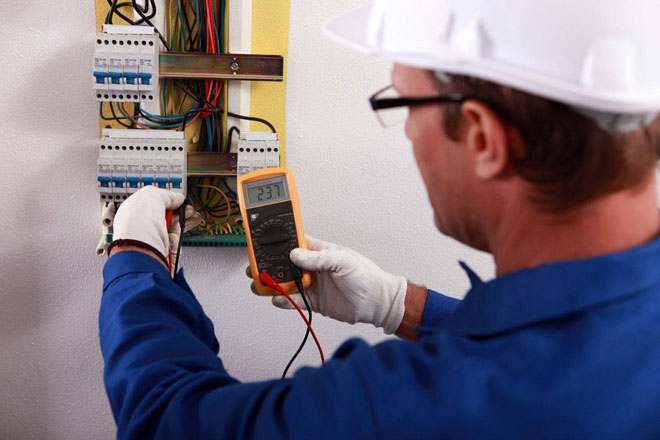
Electricians who perform the tasks of electricians have higher requirements. They must be experienced in managing power systems, have a good knowledge of electrophysics, understand the principles of current operation, and understand the design of power electrical equipment.
Electrical Engineer
Electrical engineers are qualified by graduates of technical universities. Specialists are trained in the following areas:
- electrical equipment and electrical engineering in the agroindustrial complex;
- electrical equipment of automobiles and tractors;
- management of energy resources of enterprises;
- aircraft electrical equipment;
- manufacturing of power equipment;
- power supply and cable networks;
- power systems and networks;
- relay protection and automation of electric power systems;
- power supply.
Vacancies for electrical engineers are open in construction, transportation, medicine, agriculture, medicine, the IT sector, and the defense sector. The work of these professionals may involve both the design and maintenance of electrical networks within buildings, as well as the development of electrical equipment and the creation of reliable and productive electrical circuit boards.
Job Responsibilities
The specific list of responsibilities of an electrical engineer varies greatly depending on the scope of the organization. In general, it looks something like this:
- Understand legal and regulatory documentation and be able to quickly find the necessary information.
- Accept and participate in the implementation of design decisions.
- Calculate power and energy consumption at the site.
- Prepare requisitions for the purchase of equipment and components for it.
- Organize acceptance, assembly and testing of machines, pumps, motors and other devices.
- Supervise the safety of electrical installations.
- Draw up acts for writing off equipment that has used up its service life.
- Keep an eye on electric power consumption at the company. Propose optimization measures.
- Keeping up with electrical safety. Instruct employees in the correct and safe use of electrical installations.
- Identify the causes of breakdowns and failures in the plant. Propose corrective measures to management.
Electrical Engineer Knowledge and Skills
The electrical engineer organizes the work of line personnel and provides document management. In order to make rational decisions he must have an understanding of physical processes, an excellent knowledge of electrical equipment, the ability to read and draw single-line diagrams and other wiring diagrams of different levels of complexity. The basic tools of this specialist include a computer with access to information and reference databases, and programs for drafting technical and commercial documentation: Electrician, Splan, AutoCAD, MsOffice and others. Newcomers with no experience are usually expected to know the structure of household electrical grids and relay automation, as well as a basic understanding of electronics.
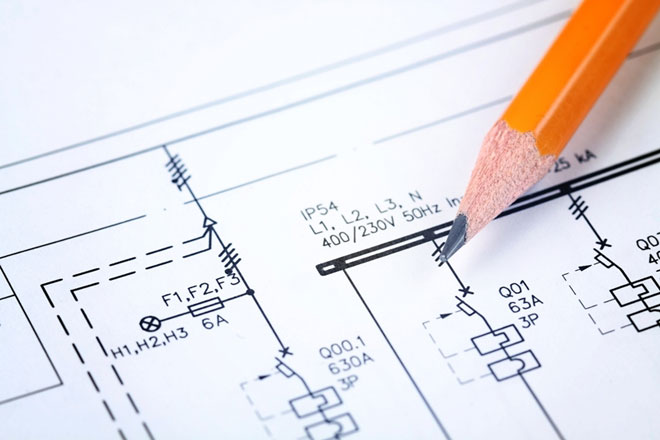
Among the personal qualities inherent in an electrical engineer are responsibility, attentiveness, good memory, and developed logical thinking. Having a personal car and willingness to travel will also be a plus when hiring for this position.
Related articles:

